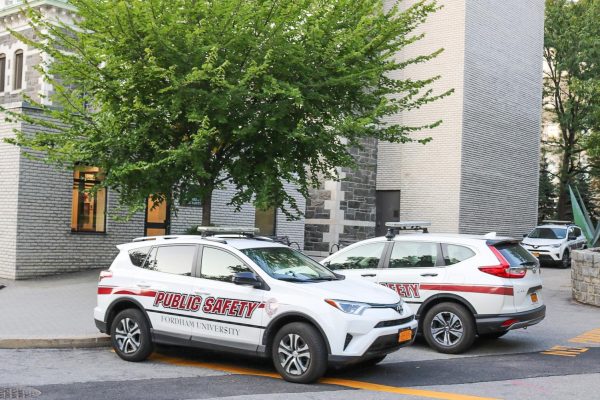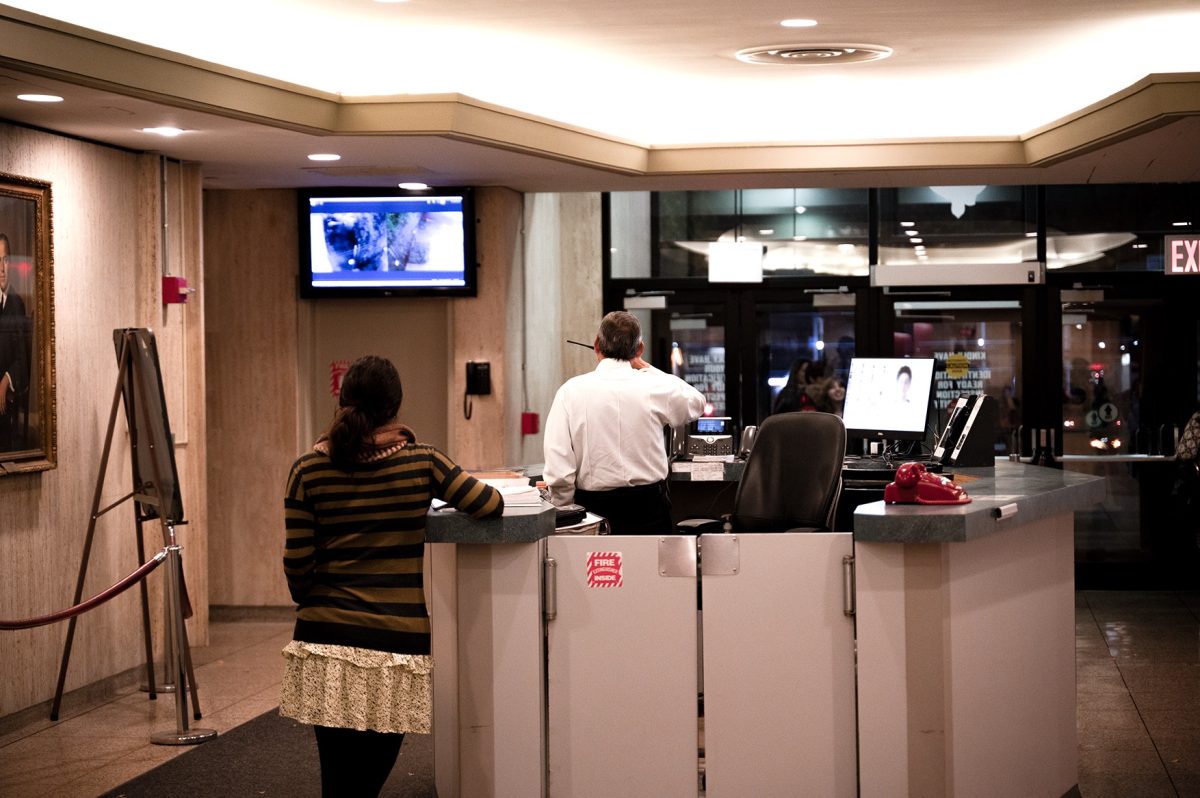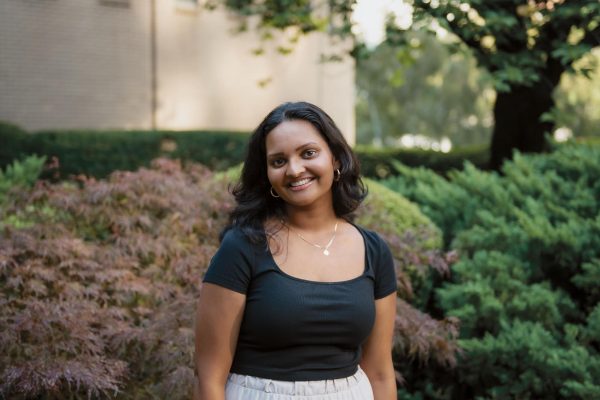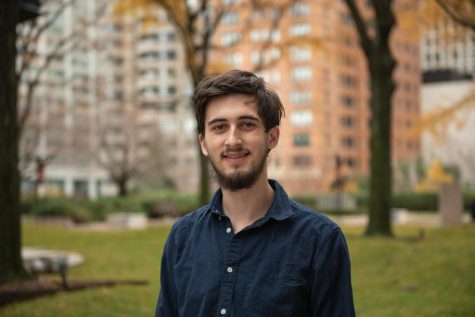University President Tania Tetlow announced a series of ongoing initiatives, such as enhanced security on campus amid increased tensions in the New York City area following the attack on Israel by Hamas militants on Oct. 7 and the ongoing airstrikes and ground invasion of the Gaza strip by Israel’s military.
Fordham’s efforts — communicated in a university-wide email on Nov. 7 by Tetlow — follow attempts made by colleges and universities across the nation to grapple with tensions on their campuses, the active organization among different student groups in support of Israel and Palestine, backlash from donors and safety concerns.
“Watching the Hamas attacks on video and then the bombs dropping on Gaza, we agonize over the innocent lives lost and so much searing pain,” Tetlow said. “For both communities, the ability for the rest of us to go about our daily lives without being consumed by that pain can feel like a real betrayal.”
The university is increasing the Department of Public Safety’s hypervigilance on campus, conducted student leader listening sessions, convened discussions with faculty members, and expanded interfaith support for Jewish and Muslim students.
In a joint statement from Robert Fitzer, assistant vice president for Public Safety, and Bob Howe, associate vice president of communications and special advisor to the president, they noted that no credible threats were made toward the university public safety’s decision to enhance security measures.
“The Hamas attacks and the War in Gaza have obviously elevated tensions in New York City, where we have significant Jewish and Muslim population,” they said in the statement. “There is always the possibility that citywide issues will spill over onto campus, so we are being especially watchful.”
No credible threats were made toward the university public safety’s decision to enhance security measures.
They shared that campus community members won’t notice a discernible difference in security presence on campus and noted that the decision to increase security is not a “show of force” but rather increased vigilance, monitoring and coordination.
In response to whether the university has enacted any specific safety protocol to protect Jewish and Muslim students, the two declined to respond to a request for comment.
The university has also attempted to address student concerns by convening listening sessions on Nov. 3 at the Lincoln Center campus, consisting of student leaders from both Muslim Student Association at Lincoln Center (MSALC) and Muslim Student Association at Rose Hill, Arabic Club at Rose Hill and Arabic Club at Lincoln Center as well as students from Palestinian descent in private conversations with Tetlow and Chief of Staff to the President Michael Trerotola.
The conversation provided a platform to connect with university administrators, said an anonymous representative of the MSALC who attended one of the sessions. The student requested anonymity due to fear of retribution from Canary Mission, a website that seeks to “(document) people and groups that promote hatred of the USA, Israel, and Jews on North American college campuses.”

these increased security measures. (COURTESY OF THE FORDHAM RAM)
“Not everything is going to be perfect, but going forward, if we have that open door for conversation and movement going forward, that’s a sign we’re progressing,” they said.
The anonymous representative also said that to support students, the university’s best course of action is to recognize Students for Justice for Palestine (SJP) as an official club on campus. They explained that when Muslim or Jewish students on campus need to seek solace or comfort, there is no equivalent space for Palestinian students to do so.
The undergraduate SJP remains unofficially recognized by Fordham’s administration after Keith Eldredge, assistant vice president and dean of student services, decided in 2017 — when he served as dean of students at Lincoln Center — to permanently ban the group.
“When you’re not allowing those students to have a student organization on campus, you’re actively telling them that they also are not welcome on campus,” they said. “The best thing Fordham can do is actually legitimize SJP.”
“Not everything is going to be perfect, but going forward, if we have that open door for conversation and movement going forward, that’s a sign we’re progressing.”MSALC spokesperson
Aside from support systems currently in place on campus, the university did not notify the attendees of any other resources, the MSALC representative said.
The Jewish Student Organization did not respond to a request for comment regarding their reflections on the listening sessions or the university’s initiatives aimed at providing support for Jewish students.
Tetlow also announced that the university would be expanding interfaith support. Erin Hoffman, director of Campus Ministry for Lincoln Center, stressed that efforts to hire an imam or rabbi have been in progress for years, but that the far reaching toll of the war in Gaza has expedited the need and process.
Hoffman shared that job descriptions for these positions are currently posted on the university’s career opportunities website. She noted that the impact of the attacks and ensuing violence have illustrated some of Campus Ministry’s past shortcomings, providing an opportunity for Campus Ministry to improve their support for Jewish and Muslim students.
“There have been numerous discussions, in the sessions I convened and elsewhere, about the unique needs of our Muslim and Jewish students for the kind of care and protection Fordham centers in its identity.”Jude Jones, associate professor of philosophy and special advisor to the provost for teaching and learning
Campus Ministry has also helped reserve a space for the Jewish Student Organization at Lincoln Center to come together and speak with one another.
“I’ve been really impressed by student leaders’ genuine desires to see the humanity in each other,” she said.
In the coming weeks, members of different interfaith groups will come together for an interfaith vigil to remember lives lost, according to Hoffman and the MSALC representative, the tentative date for the vigil is to be determined.
Tetlow’s email also shared that the Provost’s office, in collaboration with Counseling and Psychological Services (CPS), has organized several discussions with faculty members seeking to facilitate conversations about the war in their classroom settings.
Jude Jones, associate professor of philosophy and special advisor to the provost for teaching and learning, said the focus of the discussions has been ensuring that Jewish and Arab or Muslim students feel safe during these conversations. She said the university is aware of risks students face both internally and externally, such as hate-speech or doxxing.
“There have been numerous discussions, in the sessions I convened and elsewhere, about the unique needs of our Muslim and Jewish students for the kind of care and protection Fordham centers in its identity,” she said.
The university has hosted four sessions since Oct. 7. The most recent session was held on Oct. 23 and, according to Jones, was designed as a more structured conversation focused on student experiences surrounding the war in Gaza.
The university-wide email from Tetlow also included contact information for various departments across Lincoln Center and Rose Hill, such as CPS, Campus Ministry, University Health Services, the Offices of Residential Life, the Offices for Student Involvement and the Deans of Students at both campuses.



